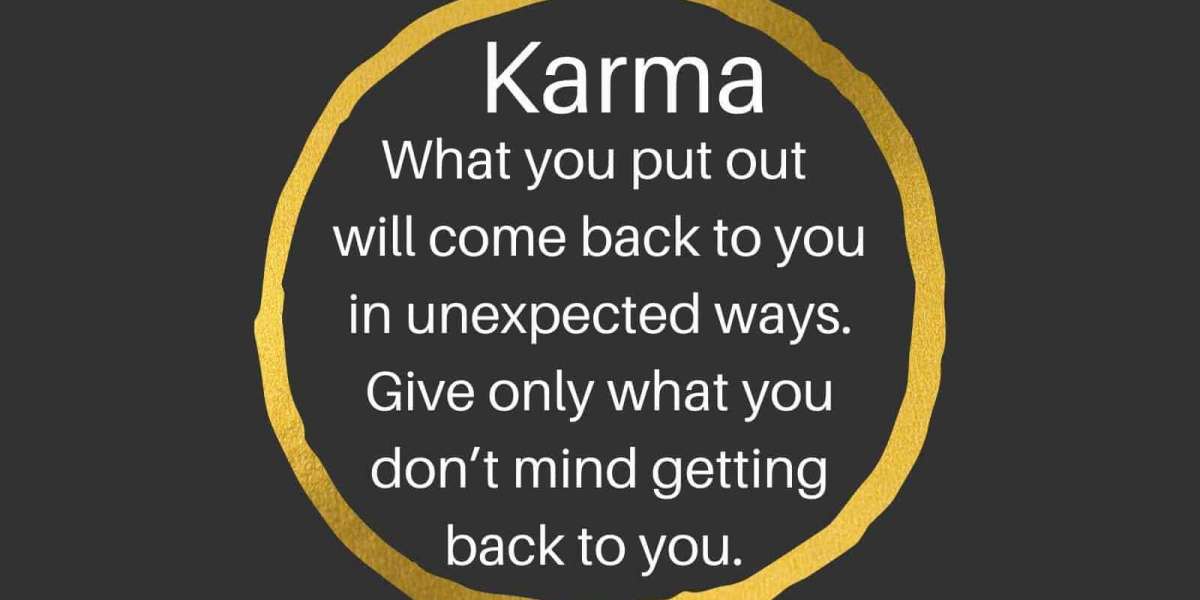Karma can have both positive and negative effects, depending on our deeds and intentions.
The phrase "karma" became popular on social media as a result of the news that Donald Trump had contracted Covid-19. In addition to spreading false information and organizing super spreader events for thousands of followers, the former American president openly mocked the custom of donning masks and downplayed the infection. There is no way to know for sure, but what happened to him shortly after may not have been karma. Therefore, it's likely that karma isn't what you believe it is.
Karma is more than merely a mechanism by which the universe exacts sarcastic retribution for wrongdoings. It's not by chance or even by fate. This Sanskrit word, which means "activity," "labor," or "deed," essentially refers to the spiritual cycle of cause and effect. Your good thoughts and deeds add to your good karma while your negative ones subtract from it. Recognize that karma doesn't always have to be bad. Instead of a specific reward or punishment, it has more to do with the law of consequences.
The concept is connected to the idea of samsara, which also has its roots in India and in Sanskrit means "wandering." The idea that all living beings are destined to experience cycles of birth and rebirth, which are likely to last endlessly, is fundamental to Hinduism, Jainism, Sikhism, Buddhism, and Taoism.
MORE ARTICLES
Five things to think about before entering a new relationship
The type of karma you accumulate on the wheel of life, or "karmic cycle," can have an affect on the present and the future, in the current incarnation or the one that will come after, with the specifics varying depending on the religion you practice. Following death, the spirit travels, bringing karmic impulses from the previous life into the present. On the other hand, it's important to remember that the karma you are feeling right now can be a result of your deeds in previous lives as well as this one.
If you're curious, having an animal rebirth is said to be an undesirable rebirth because it causes a great deal of pain. Reincarnating as a human brings you one step closer to being able to disembark from the karmic soul train. But is it possible to leave Samsara? Can we do this through striving for enlightenment or "nirvana"? Your sorrows will vanish once you arrive there thanks to spiritual practices and good karmic deeds, and you'll be able to find serenity and pleasure.Of course, your physical body will die and you won't be born anymore, but on the plus side, you'll realize the truth about reality and, if you practice Hinduism, you'll rejoin with the all-encompassing deity or soul known as Brahman.
It's critical to emphasize how your current existence is impacted by the laws of karma, which are brought on by your own deeds. Your intentions, though, are just as significant. They are equally important to your karmic profile and how they affect you. Unintentional behavior does not have a significant impact. Even performing nice things with unclear motivations can result in bad karma. In order to understand how exactly karma functions, read on if you're looking for karma quotes and sayings.
Phalas and samskaras are two categories of karma recognized by the theory of karma. Samskara refers to the internal, invisible repercussions that affect your ability to be happy or miserable, whereas phala is a visible or invisible karmic effect that is immediate or experienced within the current lifetime. This holds true for both our current lives and our future ones. What goes around must eventually come around, even though the specifics of karma theory vary depending on the spiritual discipline you practice.



Emmanuel Arthur 3 w
nice